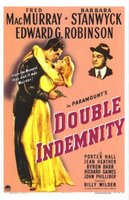 "Cinema noir" refers to any movie about a fictional situation set in any society wherein the civil defenders/avengers of individual ethical rights refuse to lend support to or cannot be invoked by a morally-ethically blameless, purposive result-seeking individual, for any cause whatever...
"Cinema noir" refers to any movie about a fictional situation set in any society wherein the civil defenders/avengers of individual ethical rights refuse to lend support to or cannot be invoked by a morally-ethically blameless, purposive result-seeking individual, for any cause whatever...The anti-thisworldist/Postmodernist version of this situation, on the other hand, is a movie about a society of collectivized dictators and obedients, wherein crime cinema noir refers to that man who does an unpermitted or unordained action and thus forfeits the support of unethical "legal" authority--which is a categorically different matter--and nominated differently since it is decidedly not fiction; or the term refers to the action of criminal in a legal society who cannot invoke aid because he is living outside the legal framework.
Four years ago, the following blurb appeared for a then new book. Please study what its author has to say..."________ is that rarity, a movie reference book that is both sensible and readable. It is also very enlightening, for by compiling this exhaustive, well-annotated encyclopedia, listing the hundreds of pictures comprising the noir tradition, the authors make us see that it was more signifying a characteristically American way of making films--and of observing the world than was probably realized before."
I admit to having being embittered beyond words by such fantastic claims. This is what I wrote about the quoted baseless claim, at the time I first read it: "The book cited in this blurb undoubtedly offers no acceptable scientific definition of cinema, nor of cinema blanc nor of cinema noir. Since only I can claim to possess and defend all these and have announced them, and the author is not quoting me, what I say must be true; even if my definitions were wrong, without his attempting his own definition of film he could hardly be "right"."
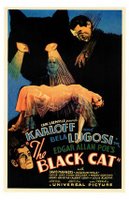 I would not doubt that every one of the films listed in that gentlemen's work contains some visual or story element of a "cinema noir aspect". But, please, consider the impossibility of the idea of compiling an "exhaustive" or "well-annotated" list of examples of a sort of film that only I have defined and which no one else even tries to define any longer! How could that possibly be done?
I would not doubt that every one of the films listed in that gentlemen's work contains some visual or story element of a "cinema noir aspect". But, please, consider the impossibility of the idea of compiling an "exhaustive" or "well-annotated" list of examples of a sort of film that only I have defined and which no one else even tries to define any longer! How could that possibly be done?This is an action insane on the face of its claim; an act of arrogance aimed at cowing the opposition, who would otherwise object to its pretensions; what it is not is a scientific proof aimed at accomplishing anything else on Earth in regard to earned virtues. As to the volume's value, surely that must have been severely compromised by the writer's defalcation of not supplying a categorizing definition of 'that of which cinema noir consists', in a book on the topic of "cinema noir"?
German Expressionism is often cited as a source of noir characteristics, but its heyday preceded most noir by twenty years. McCarthyism, cited in the review of the book I mentioned above also belongs to an era much later, and was not in practice when noir was being created. French critics named the genre, originally, for secondary characteristics, without being able to define it sufficiently either.
I argue (as a scientist) that cinema, noir or blanc cannot be defined by visual style alone; because I claim nothing can be ever be adequately defined by ostensive detail alone, not on a categorizing or science level. Scientific-level definition must (realistically) deal with the 5 or 6 prioritized centrally important function-level inner workings or man-created characteristics of anything "at normative condition"; and such a definition cannot deal merely with a "recognition silhouette", or appearances alone.
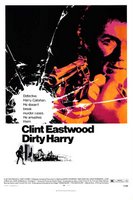 Since cinema noir, moreover, is a genre of morality-and-ethics, one with constitutional-societal implications, this means it cannot be identified by concrete visible details nor even by concrete narrative structural elements; it has to be defined, I assert again, according to the philosophical ideas that separate its content from those contents of competing genres--such as crime films, police films, mean streets docu-realism, and a dozen other genres, which all are primarily "locale-grounded" sub-genres. (All these sorts of films, I remind the reader, are sub-divisions of film that also can contain noir elements and noir stylistics wiithout being wholly "noir" rather than "blanc".)
Since cinema noir, moreover, is a genre of morality-and-ethics, one with constitutional-societal implications, this means it cannot be identified by concrete visible details nor even by concrete narrative structural elements; it has to be defined, I assert again, according to the philosophical ideas that separate its content from those contents of competing genres--such as crime films, police films, mean streets docu-realism, and a dozen other genres, which all are primarily "locale-grounded" sub-genres. (All these sorts of films, I remind the reader, are sub-divisions of film that also can contain noir elements and noir stylistics wiithout being wholly "noir" rather than "blanc".)For these reasons, the book referred to in the quote cited above I say cannot be "comprehensive", not without a fundamental defining of "cinema", "noir" and "blanc" being adduced as its basis. It cannot be illustrated either, except by the inclusions of chosen discontexted visual examples--instances chosen without regard to any such informing definition as I have argued is absolutely necessary in this case, not so long as such a definition remains unsubmitted and/or imperfect.
There can be no such creation as an encyclopedia of the undefined.
Cinema noir is socio-ethical in its basis; its stories can take place in the country or the city, wherever danger exists and where help is hard to come by; but it can also exist in boardrooms, mansions, courts of law, the offices of politicians and anywhere else its characteristic sort of action can be engineered to happen.
Cinema noir also cannot exist only in savage country, where no authority-law protective organization is present to be "unavailing or unavailable". If the book I referred to earlier was intelligently organized, so much the better; but that attractive feature cannot overcome its fundamental falsity. And what the world needs is a scientific definition of noir, not a coffee table book of pictures embedded in pretentious text.
Any book written thus far on noir has, thus, primarily to be a fraud for the above-cited reasons; those who produced, approved and lionized the one whose ads I noted had to know its shortcomings, if they are scientists; and if they are not scientists, they know logically the author couldn't have produced the level of value they claimed it represents.
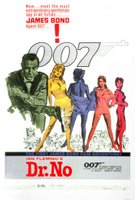 And this must remain true so long as no conception of 'noir' and 'blanc' or even of "film" have been accomplished; but, in particular, this has to be so while no agreement among those in the field has been obtained as to a definition of their central topic.
And this must remain true so long as no conception of 'noir' and 'blanc' or even of "film" have been accomplished; but, in particular, this has to be so while no agreement among those in the field has been obtained as to a definition of their central topic.Several books on cinema noir have been written, already, and several I suggest may be valuable additions to this field. Ethan Mordden in 1979 in his widest-ranging volume on film said, "No one really knows what cinema noir is"; I claim to have proven him wrong--but only I have done so, I assert; certainly not the author of the above-noted "encyclopedia's' failed science..(Yes, that's what it was supposed to be--an ecncyclopedia...).
The subject of cinema noir is not being neglected. So many others in film having been the province of government academics for decades, a field of thought they cannot define and have despaired of silencing their increasingly vocal critics. So it was that the author(s) of this volume, being in this academic position, I claim, may simply be downplaying the problem of absolute understanding by substituting false headlines for epistemological functions.
Consider: Many people have had valuable things to say about cinema noir, but they have not said enough about what cinema is, cinema blanc nor cinema noir, to establish anything--unless it is their lack of requisite knowledge to be called scientists of their field.
These analysts have I argue mistaken and substituted "appearances" for deeper realities and then constructed an tautological anti-concept as in this work's advertisement: "Film noir is whatever you see in a film noir movie. This is a book about all film noir movies. Therefore, this is a book about whatever you see in any film noir movie."
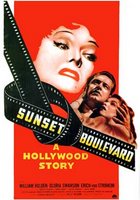 The book may contain valuable insights, pretty pictures, valuable lists, historical details, discontexted evaluations and much more. I will admit that it probably does contain good material. But on a basis of non-definition, it can hardly offer any provable nor foundational truths.
The book may contain valuable insights, pretty pictures, valuable lists, historical details, discontexted evaluations and much more. I will admit that it probably does contain good material. But on a basis of non-definition, it can hardly offer any provable nor foundational truths.The constituent elements of 'noir' in science have to be evaluated and accounted for, not merely guessed at as visible elements of locale, epoch or 'style'. The elements of westerns, police movies, historical adventures or even musical-theatrical films might be so treated with no certainty but more success. Police movies must be after all about some police operative; westerns must take place in a locale called "The frontier" or "The West:, and musicals must feature a sufficient amount of orchestral, band, solo or vocal numbers. These genres can thus be defined in a way cinema noir cannot, therefore.
The elements of noir most often cited by reviewers, I argue, are neither prioritized in order nor fundamental to the genre's nature. The authors commenting on noir talk about dangerous women in the genre, shadows, dark alleyways, perils, uncertainties, callous or cruel motivations, eerie music, actions that take place by night, vivid action scenes, violence, mean streets and cheap rooms as locations, runnings, fightings, escapings, chasings, etc.; and they are undoubtedly noting factors prominent in some noir films.
But, as I defined at the outset here, both cinema noir and cinema blanc are the categorical contrasted central pair of legitimate potentials (in all but wilderness-based, moral-ethical hero-centered fictional movies); and so there exist a corresponding categorically opposed set of crime noir opposites (in crime-noir "case history" or "totalitarian noir" films).
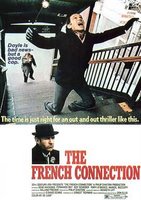 What I said in 2002, at a Popular Culture Association Western regional Convention in Las Vegas is truer than ever today. I first defined cinema noir that day, as I did above. I then added the following comment: "The reason cinema noir is not being made today is a strange one. Men made noir when they saw the authorized governors of their nation failing to do their Consitutional duty. Now that such leaders have given up even a pretense at efficacy, in so many ways, since 1994 and the end of the sixth 90-year-long mental century since the Renaissance was begun in the Engish speaking world (1470), the situation can be summed up in two sentences: "Men can't make noir because they will not admit in the US that their government is now an unconstitutional one. Therefore, in the US you do not have noir films--but you have noir lives instead."
What I said in 2002, at a Popular Culture Association Western regional Convention in Las Vegas is truer than ever today. I first defined cinema noir that day, as I did above. I then added the following comment: "The reason cinema noir is not being made today is a strange one. Men made noir when they saw the authorized governors of their nation failing to do their Consitutional duty. Now that such leaders have given up even a pretense at efficacy, in so many ways, since 1994 and the end of the sixth 90-year-long mental century since the Renaissance was begun in the Engish speaking world (1470), the situation can be summed up in two sentences: "Men can't make noir because they will not admit in the US that their government is now an unconstitutional one. Therefore, in the US you do not have noir films--but you have noir lives instead."This is central importance of defining hero-centered thisworldly narrative as "fiction", and then differentiating cinema blanc and cinema noir in moral-ethical and societal terms, not according to visual cues, but instead according to philosophic "genetic" idea bases. Nothing anyone can say can be more important I suggest than the insistence that "one cannot ever fake reality in any way and attain success in reality".
In defining cinema, realism first consists in dealing with the fundamental nature of reality, of man (its natural offspring) and with the societies men form as category-level definitional and existential marketplaces of ideas, goods, work and governmental choosings. It is within this context that film, noir and blanc, I insist needs to be identified and understood. Blanc refers to "a legal society whose government helps the moral-ethical"; noir refers instead to "a society where the government's servitors cannot or will not aid the moral-ethical central character of the purposive work."
Cinema noir can be:
comedy--The Court Jester, Support Your Local Sheriff, The Golden Blade, Many Rivers to Cross, The Sheepman;
satire (idea-level happy-ending film)--Picnic, The Assassination Bureau, Charade, Cat Ballou, Don't Go Near the Water;
adventure--North By Northwest, The Big Sleep, The Maltese Falcon, Rear Window, Dead Reckoning;
drama--The Fountainhead, The Second Woman, A Tattered Dress, Mr. Smith Goes to Washington, Model For Murder
...by Robert David Michael Cerello




